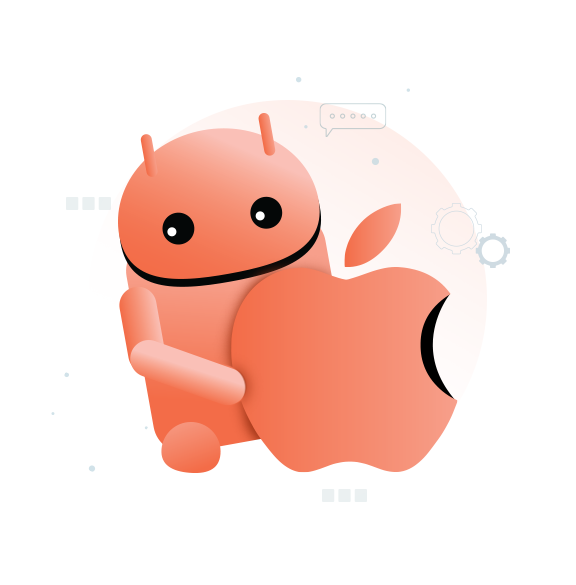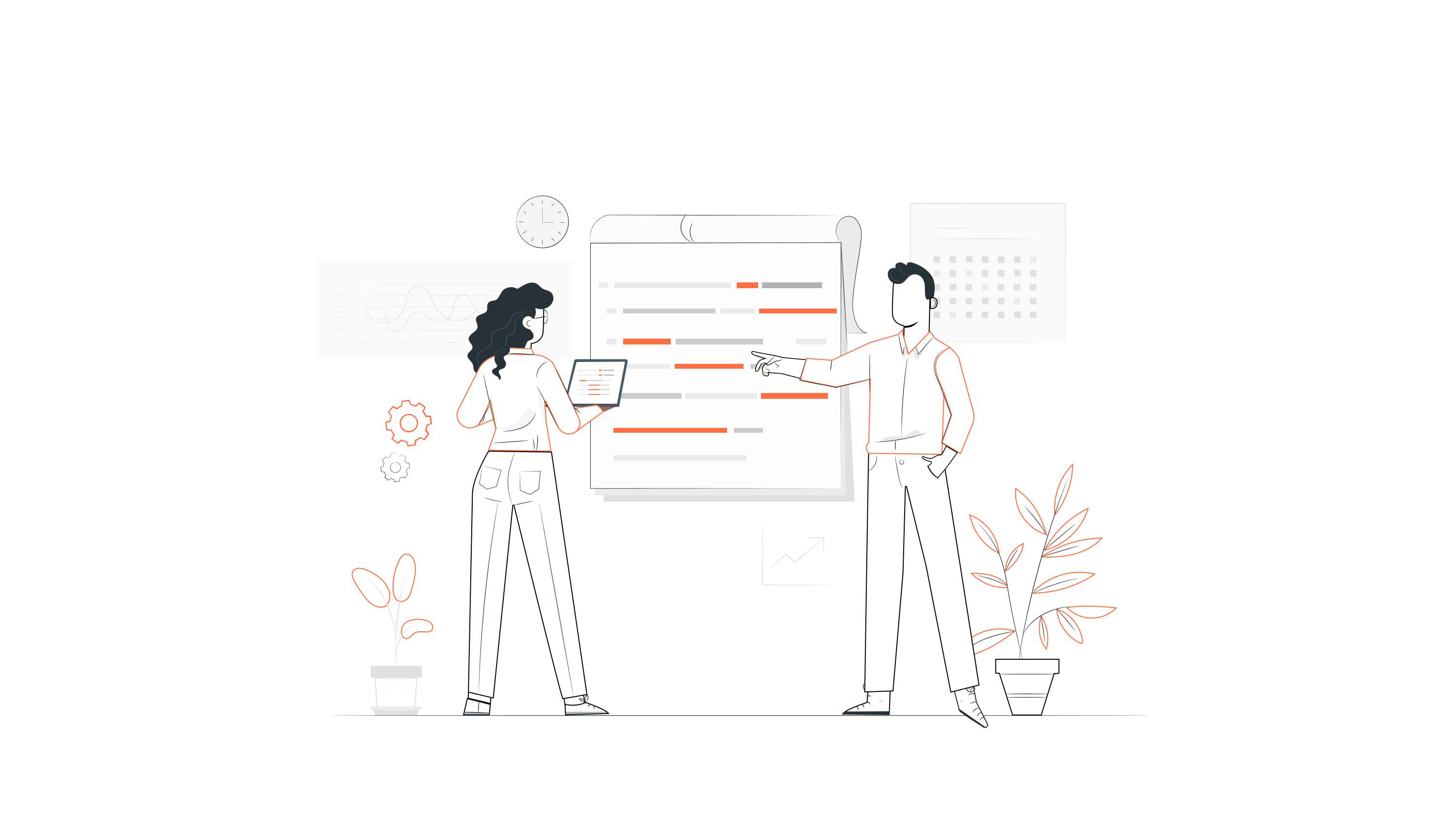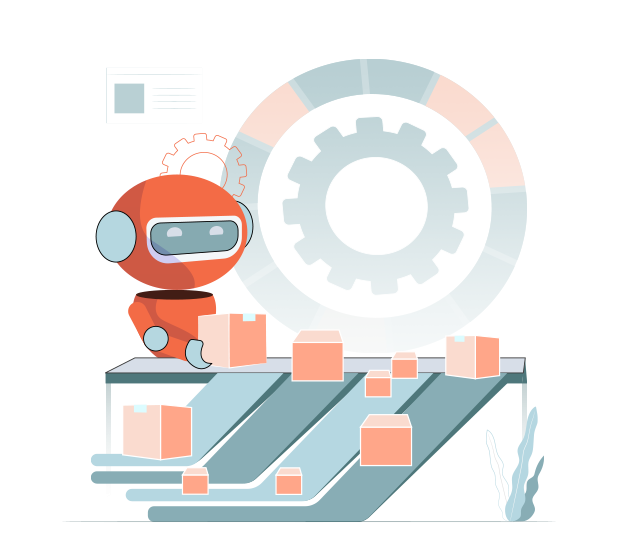iOS or Android mobile app developers are indulging in more and more innovative software development to make our lives easier and more productive. It’s a hot market, no doubt!
Now, if you want to profit from this app development market, you might be wondering about Android vs. iOS app development and which platform is the best investment for your mobile startup.
In this blog, we’ll take an in-depth look at:
- Android vs. iOS app development
- The pros and cons of both
- The difference between Android and iOS app development,
- The points you need to consider before deciding on one of the two for your mobile startup.
Analysis: Current Market
Let’s start with the basics.
Is there really a need for you to enter the mobile app development industry?
Um, that’s a BIG yes! Smartphones are blowing up, and the growth trajectory of this industry is on an upward curve. Let’s quickly analyze the smartphone app market before we delve into which platform would work better for your business needs.
Android vs. iOS: Number of Smartphone Users
The number of global smartphone users in the year 2022 is estimated at 6.6 billion. You read that right! This shows a 4.9 percent annual increase in numbers, according to stats collected. Compare this to 2016, when there were only 3.7 billion. That’s a 79 percent increase, folks!
So, yes, your app will be relevant as long as it’s a good one that serves your user needs.
The market share division factor for iOS and Android is calculated in terms of the total number of users on both these platforms.
Research shows that Android development has a greater market share than iOS development.
But this is a relative statistic because we all know that the number of Android devices is approximately 10 times more than iOS flagship devices, so it goes without saying that Android devices will have more users.
This is not the reason to go for Android app development for your startup business.
However, one can say that Android is a preferable choice for startups who don’t want to take a lot of risks because the market visibility for Android apps is much higher.
Android vs. iOS: Revenue Generation
As a startup, especially if you follow a bootleg startup model, one of your primary concerns will be revenue generation. So, the platform you choose will have to complement your goal of achieving your financial projections.
It goes without saying that iOS apps generate more revenue as the audience is more niche, but if you play your cards right, you can also hit your financial targets by utilizing the sheer number of Android users.
You can also consider starting with either and slowly expanding to a multi-platform approach so that you leave no stone unturned when it comes to revenue generation.
Android vs. iOS: User Retention
It’s not enough to onboard users for your Android or iOS app. The challenge is retaining them with great features and design. So, which do you think has a higher app uninstall rate – Android or iOS apps?
There’s no cut-and-dry answer to this. Your user retention will depend purely on the kind of user experiences you provide and the levels of satisfaction your customers get from using your app.
However, if you were to consider basic human physiology, you’ll see those Android users are more forgiving and less likely to uninstall their apps if they face glitches, whereas iOS users have less tolerance for glitching apps and tend to uninstall them as soon as they have a bad experience. Which figures, considering that iOS apps are usually more costly to procure.
You Have the Market Data. Now What?
Now that you know the market standing, it’s time to understand the exact requirements of your business. This will help you zoom in on the best platform to develop your Android or iOS app.
For starters, consider the following questions:
- What do you hope to achieve with your app?
- What sort of impact do you want to make with your app?
- Are you looking at the volume game or the quality game for your revenue generation?
- Do you have an exit strategy in mind for after you make profits?
- What are the pain points of existing mobile apps that you wish to tackle?
Consider the next points carefully and map them to your requirements. Before you know it, you’ll be on your way to hire the best tech team to help you put together your startup’s app!
Android or iOS app? Points to Consider Before Making a Decision
So, should you develop an Android app? Or perhaps place all your eggs in developing an iOS app?
Consider the following points before you put on your decision-making cap!
- Where Is Your User Base?
Where will most of your users be located? We already discussed Android’s dominance in the global mobile app market by sheer virtue of the number of users. But where is the geographical location of your target audience?
Android boasts a mind-blowing 80% of the app market, and Android users can be found in any corner of the planet.
However, Apple has a clear monopoly over some of the most high-income areas like North America, South America, and Australia.
So, if your target audience belongs to the West geographically, you might want to consider iOS users and their needs, but if the world is your oyster, then Android app development is as safe a bet as any!
- Who is Your Target Audience?
You need to think beyond geographical borders if you want to zero in on your ideal audience.
What are the social and economical predictions of your target audience?
Studies show that iOS users tend to belong to a higher income bracket (which makes sense, as Apple products are priced relatively high), have better educational backgrounds, engage more with the apps they purchase, and are willing to spend a lot more on the apps than Android users.
Android users have their own distinctive characteristics that set them apart. They are usually more conscious of their spending, fall in the 25 to 45 age range, and adopt technology later than most as it is about functionality for them and not keeping up with the latest tech trends.
Here is a statistical record of mobile applications in the year 2022 to help you with your decision.
- What is Your Revenue Model?
How do you plan to fund your business?
Your revenue model plays a major role in determining the type of platform you should choose for your app development.
If you plan to generate revenue with in-app purchases and premium subscription models, then iOS is a better option for you, as your niche audience is also going to be big spenders.
Android users are more conscious of their in-app purchases, and the number of similar apps out there makes it easier for them to switch loyalties easily if they find one app too pricey.
- How Far Do You Want Your Services to Reach?
Do you want to reach a niche audience or take your app worldwide? Do you plan on addressing the needs of an elite group of sophisticated users or do you want to bring your app to the masses?
Android apps can reach a wider audience across more devices and can make your app. In comparison with Apple, Android now has thousands of devices under it thanks to its partnership with Google.
But, if you want a niche user base, then iOS app development is your answer!
- What About Ease of Design and Development?
How much effort are you willing to put into your development process?
Of course, the ease of design and development does not really depend on the platform you choose, rather it is heavily reliant on the skill of the tech partner you choose to work with.
One thing to note when it comes to design is that Android customization is much easier and you can create exceptional user experiences using Android technology.
Meanwhile, coding is generally perceived to be a little easier for iOS app development for startups as iOS languages like Swift are easier compared to Android’s Java.
Suggested read: How to Choose a Mobile App Development Framework in 2022: A Beginner’s Guide
- How Often Do You Plan to Update Your App?
What is your anticipated frequency of release cycles?
iOS apps can have as many release cycles as they require because they are not bound by any restrictions from their partnered OEM devices – because they don’t have any!
The amount of fragmentation for Android apps across different devices makes it a little harder to plan and execute OS releases across all of them simultaneously.
- What’s Your App Development Budget?
And the question of the day: how much do you have to spend?
If you’re a fully funded startup, then this might be a moot point for you, but if you function as a bootstrap, then the budget is something you pay attention to while deciding on the type of platform for your app.
Android app development takes longer than iOS app development and is also around 30 percent more expensive, so keep that in mind while making your decision.
Suggested read: What is the Average App Development Cost in 2022?
Difference: Android vs iOS app development
Now, let us look at the technical aspects of developing a mobile app. Exploring the developmental difference between Android and iOS apps will help you better understand which way to lean for your own mobile app!
There are numerous differences between iOS and Android app development, which must be considered by your tech team before you begin your iOS or Android software development. Let’s examine a few relevant ones here:
- Android vs iOS Programming Languages
If you already have a development team in place, then this is a very important point you need to consider. Which programming language are your developers fluent in?
Android app development requires proficiency in Java (ah, a classic), whereas iOS app development requires Swift or Objective C. And if you’re wondering which is easier (barring the skills of individual developers) the aptly named Swift is quicker and easier to code with while Java takes more time to work with.
The learning curve for Swift is also much shorter since it’s a clear and precise language that is easy to understand.
There are also programming languages like Kotlin that can be used for both Android and iOS app development.
Also, take a look at the top mobile app development frameworks of 2023.
- User Interface Development
At the end of the day, you will be all about creating user experiences that leave a mark. And iOS animations can definitely help you with that!
iOS devices are also much more appealing in design and Apple focuses on creating more and more delicate and complex interfaces. While Google is working on enhancing the quality of its OS animations, the primary focus for Android devices is on the hardware, rather than the software.
Suggested read: UX Design Best Practices 2022: The Ultimate Beginner’s Guide to User Experience
- Form or Function?
The question is as old as time: form over function or function over form? Which tools must your designers use for Android and iOS platforms?
Android app designs rely on colors and motions to convey their essence, and Android UI designers utilize tools that help them work well with colors, shading, and a play of lights.
Meanwhile, Apple seems to place more importance on the functional aspects of mobile applications over the design characteristics.
- Testing Environments
QA testing is an unavoidable part of developing any application, be it on Android or iOS.
Android and iOS both have their own unique tools for testing your app, namely the iOS simulator and the Android emulator.
The iOS simulator works a lot faster than the Android emulator, thus making the QA testing phase quicker for iOS apps.
On the flip side, it is not nearly as accurate as the Android emulator, which has a powerful Central Processing Unit and delivers more precise results.
- Android vs iOS Developers
And last, but not least, the magic makers: the developers who make your iOS or Android app dreams a reality!
There’s no determining whether Android developers or iOS developers are better at their jobs because the performance of developers is a direct result of their skillset and their ability to think up innovative codes!
Android developers are usually more skilled in Java, whereas iOS developers veer towards Swift and Kotlin.
Which is Better? Android or iOS?
If you’ve been reading carefully, you’ll know that there’s no simple and straightforward YES or NO answer to this question.
But, now you know the market and the points you need to consider before choosing between Android or iOS for your mobile startup.
And while we can’t tell you which platform would work best for your startup app development plans, we can tell you when you need to consider Android app development and when iOS app development might be a better fit for your goals.
So, When Should Startups Choose Android App Development?
There are a few factors that stand out for Android app development. If your business requirements align with the following points, then you should probably start looking at Android app development:
- Your audience is scattered and global (no niche audience)
- Your app will require numerous customizations and tweaks
- You wish to reach a wider audience and become a household name
And When Should Startups Choose iOS App Development?
There are a few significant factors that can tell you if your startup should go with iOS app development. iOS devices are your best friends if your business requirements align with the points given below:
- You wish to target a niche, the elite audience for your app
- You do not want to follow an app fragmentation strategy
- You want to generate high revenue within a short time constraint
How Can NeoITO Help?
While the platform you choose for your mobile app development process has a direct correlation with the market success of your app, you need not limit yourself to just an Android or an iOS app.
You can opt for cross-platform app development if that’s the best fit for your business requirements.
Cross-platform app development is the creation of mobile applications that are compatible with both Android and iOS platforms.
Exploring cross-platform apps come with numerous opportunities for you to scale up your mobile startup and reach a wider and more diverse audience.
Whether you opt to go for an Android app or an iOS app, or even a cross-platform app, NeoITO can help you develop a mobile app that is innovative and designed to delight!
NeoITO is one of the top mobile app developers in the US and houses some truly exceptional and experienced iOS and Android app developers and designers.
FAQ
Is iOS app development easier than Android app development?
When it comes to the actual development of Android apps or iOS apps, there is no such thing as one being easier than the other by a large enough margin to make any real impact.
At the end of the day, it is all about the skill of your developers and how well they can code in the programming languages of their choice. So, make sure you partner with a reliable tech partner like NeoITO!
Do mobile app developers prefer Android or iOS development?
In 2014, Apple introduced Swift, a powerful programming language, as a substitute for Objective C, and to this day, it remains one of the most popular programming languages used for iOS app development. So, if you’re a developer who is well-versed in Swift, you’re more likely to prefer iOS app development.
On the other hand, if Java is your first language, you might be more inclined towards Android development because making an app on Android would be easier for you.
Is iOS app development more profitable than Android app development?
The revenue you stand to generate will depend on the type of revenue model you plan to implement. If you’re planning to monetize your app development efforts through a subscription model or by utilizing in-app purchases, then iOS is definitely the more lucrative platform for you to invest in.
Meanwhile, if you’re looking to generate revenue using a based revenue model, then Android apps are good bets.




